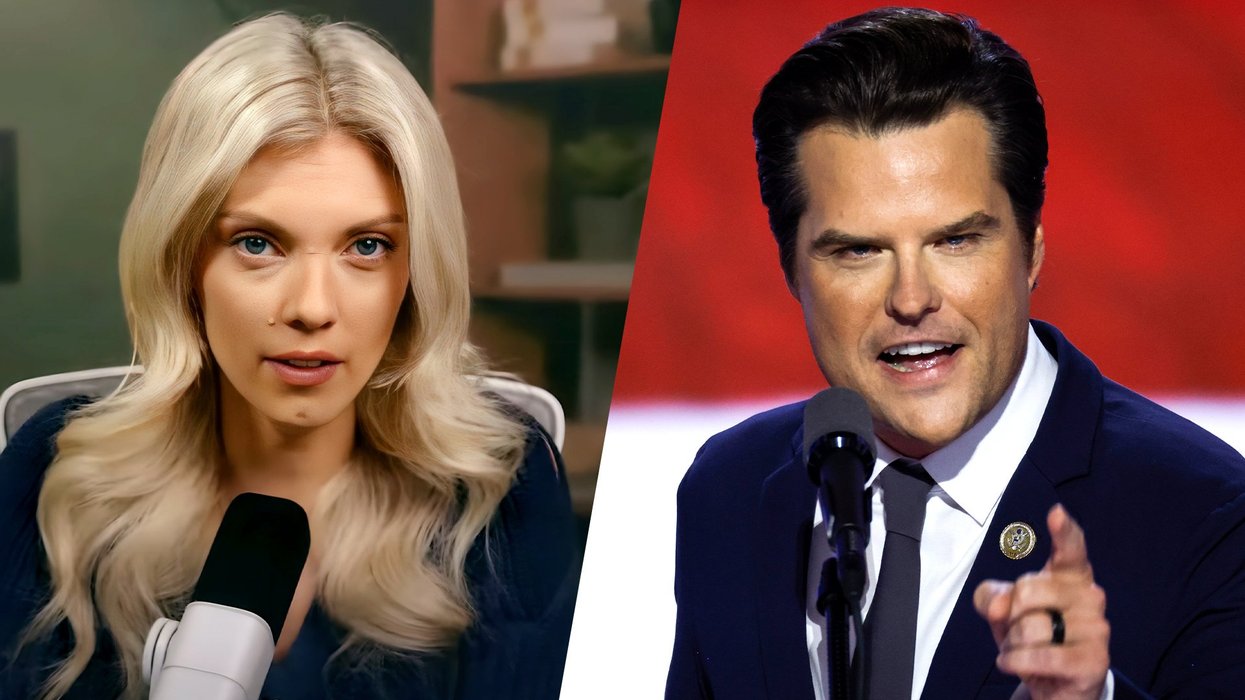
© 2024 Blaze Media LLC. All rights reserved.
PayPal Clarifies Its Position (Twice!) on the Sale of e-Books Containing Images of Rape, Bestiality, Incest, & Child Porn
March 14, 2012
"An important factor in our decision ... is that this category of eBooks often includes images."
Last month, PayPal sent emails to at least three e-book publishers and booksellers warning them that their accounts would be "limited" unless they removed titles that contained "themes of rape, incest, bestiality and underage subjects," Reuters reported last week.
But what did they mean by "themes"? That seems like a poorly chosen word because, if you think about it, wouldn't that include pretty much everything written by the Greeks and the Romans?
 We’re not sure what’s going on here, but we're hoping PayPal bans it.
We’re not sure what’s going on here, but we're hoping PayPal bans it.
In response to the company's announcement, free speech groups including the Electronic Frontier Foundation, the Authors Guild, the American Booksellers Foundation for Free Expression, and the Association of American Publishers went on the offensive and launched several anti-censorship protests.
"The topics PayPal would ban have been depicted in world literature since Sophocles' 'Oedipus' and Ovid's 'Metamorphoses,'" the groups wrote, according to a draft letter sent to CNET. "PayPal, and the myriad other payment processors that support essential links in the free speech chain between authors and audiences, should not operate as morality police."
As the complaints grew louder, PayPal spokesman Anuj Nayar decided to explain in a blog post that the company actually allows its service to be used for the sale of "erotic" books but that it draws the line "on certain adult content that is extreme or potentially illegal."
"An important factor in our decision not to allow our payments service to be used to purchase material focused on rape, incest or bestiality is that this category of eBooks often includes images [emphasis added]," Nayar explained.
"This type of content also sometimes intentionally blurs the line between fiction and non-fiction. Both these factors are problematic from a legal and risk perspective," he added.
PayPal soap: for the PayPal employees who have to deal with the authors of these books.
Furthermore, according to a February 24 email, PayPal based its decision on major financial concerns, stating "Our banking partners and credit card associations have taken a very strict stance on this subject matter."
 Above: Nayar & Paul Sorvino. Separated at birth? You decide.
Above: Nayar & Paul Sorvino. Separated at birth? You decide.
"Our relationships with the banking partners are absolutely critical in order to provide the online and mobile services we (offer) ... to our customers. Therefore, we have to remain in compliance with their rules, which prohibit content involving rape, bestiality or incest," the email added.
So they were simply concerned about the financial and legal ramifications of participating in the sale of titles that include images related to rape, incest, bestiality, and child porn.
Seems pretty clear, right? Apparently not. PayPal had to go out a second time and clarify their stance.
On Tuesday, PayPal released the following statement:
First and foremost, we are going to focus this policy only on e-books that contain potentially illegal images, not e-books that are limited to just text. The policy will prohibit use of PayPal for the sale of e-books that contain child pornography, or e-books with text and obscene images of rape, bestiality or incest…
In addition, the policy will be focused on individual books, not on entire “classes” of books. Instead of demanding that e-book publishers remove all books in a category, we will provide notice to the seller of the specific e-books, if any, that we believe violate our policy.To be clear, we have not shut down the PayPal account of any of the e-book publishers involved in this matter.
Creepily enough, Joan Bertin, executive director of the National Coalition Against Censorship, is dissatisfied with PayPal's second clarification.
"Verbal descriptions of child pornography are not illegal," she told Reuters. "That's why we can read Lolita...Actual images of child pornography are a different situation all together -- if they are photos of actual children."
"I'm glad they're moving in the right direction, but I hope they continue to consider potential problems they are creating for themselves and their customers by getting involved in such policing," Bertin added. "I don't think we need another quasi police force trolling the Internet."
(H/T: Newser)
Want to leave a tip?
We answer to you. Help keep our content free of advertisers and big tech censorship by leaving a tip today.
Want to join the conversation?
Already a subscriber?
more stories
Sign up for the Blaze newsletter
By signing up, you agree to our Privacy Policy and Terms of Use, and agree to receive content that may sometimes include advertisements. You may opt out at any time.
© 2024 Blaze Media LLC. All rights reserved.
Get the stories that matter most delivered directly to your inbox.
By signing up, you agree to our Privacy Policy and Terms of Use, and agree to receive content that may sometimes include advertisements. You may opt out at any time.



